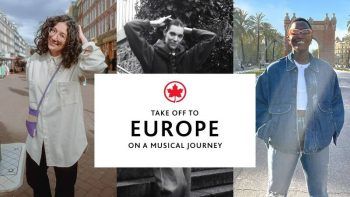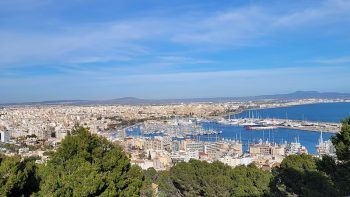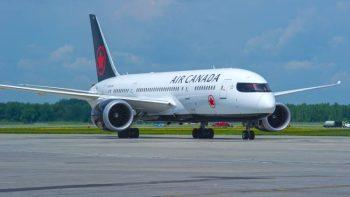Unlock the Superpower of Tailoring Travel to Your Clients’ Personality Traits
Award-winning branding expert, investor, author and speaker, Lisa Patrick is Managing Partner Assessments24x7.ca Canada, founder of BravuraBranding.com, and co-founder at Belongify.com.
Lisa shares with Open Jaw readers an analysis of how using a tool such as the DISC personality type assessment can help travel advisors understand and serve their clients better:

As they say, "Different strokes for different folks," and that couldn't be truer when it comes to travel.
As a professional travel advisor, you wouldn't want to suggest a skydiving adventure to someone who's more of a sit-on-the-beach-and-sip-a-cocktail kind of person. That's where understanding the personality or better yet, communication and listening styles, of others come in handy. It's like having a secret decoder ring to unlock the mysteries of each traveller’s psyche.
By understanding some of the common traits of different personality types, travel advisors and marketers can tailor a package tour that's in line with the traveller’s motivations and preferences. So how do you discover your client’s traits?
Start by asking great questions and listening to how your client responds. The answers provide insight into an individual's personality type and behaviour. A tried and true system categorizes individuals into four distinct personal styles - Dominance, Influence, Steadiness, and Conscientiousness. Each group has its own set of behavioural traits and characteristics which can influence the way they prefer to travel.
Here are six questions to ask a client to help identify the four different DISC personality types according to Tony Alessandra:
- Dominance (D): What are your top travel goals or objectives for this trip, and how do you plan to achieve them?
- Influence (I): What types of social activities or events would you like to experience during your trip?
- Steadiness (S): How important is relaxation and downtime during your trip, and what are some of your preferred ways to de-stress?
- Conscientiousness (C): How much research have you done on your travel destination and what are some of the key factors you considered in your planning?
- Dominance (D) and Influence (I): How important is it for you to be in control of your itinerary, or do you prefer to go with the flow and make decisions on the fly?
- Steadiness (S) and Conscientiousness (C): How do you handle unexpected changes or disruptions in your travel plans and what steps do you take to minimize stress or anxiety?
For instance, if a traveller is more of a "go with the flow" type, a tour that allows them to explore the local culture and cuisine at their own pace might be more suitable. On the other hand, if the traveller exhibits more of a "Conscientious" personality, a tightly structured tour, well thought timelines with lots of activities and excursions would be a better fit.
Understanding your client's personality type and behaviour preferences can inform recommendations for travel experiences and accommodations that align with the client's needs and preferences. Based on the client's responses, a travel agent can adjust their communication and sales strategies to effectively connect with the client.
Below are some indicators of the correlation between personality traits and tourist behaviour.
High D's
- Prefer luxury locations, high-end transportation.
- Big-ticket items, primarily for visibility to others and displaying their ego.
- Want to show that they’re in charge.
High I's
- Interested in the social life at the destination
- Want to fill their days with fun for themselves and others
- Keep them entertained
High S's
- More family oriented
- Activities which the kids will like
- Can we all sit together on the plane?
High C's
- More interested in seclusion / solitary activity (reading books on the beach)
- Typically want to avoid crowds, noise, and parties
- Interested in quality, but not necessarily high-end.
For example, adventure travel companies may want to focus their marketing efforts on individuals with a dominant personality, while cultural tour operators may want to target those with a conscientious personality. Similarly, travel agents may want to offer more independent travel options to individuals with a dominant personality, while focusing on group tours for those with an influential personality.
Understanding the personality traits of potential travellers is like a superpower in the world of travel. It helps customize offerings, leading to happier clients and more successful travel experiences, and who doesn't love a happy traveller?
The following is a quick ‘how to profile your travel clients’ by simply listening:
High D's ask a lot of ‘What’ questions.
- What’s this going to cost
- What can you do about ground transfers?
- What’s the easiest way to get around?
- What meetings might be there?
High I's ask a lot of ‘Who’ questions. (People-orientation)
- Who else is going on this trip?
- Who can I ask to come along?
- Who’s going to be at the parties?
- Who can give me a list of the hot-spots?
High S's ask a lot of ‘How’ questions.
- How will the connecting flights work?
- How does the (coupon, code, fill-in-the-blank) system work?
- How can I bring extra luggage? (= possessive of their stuff)
- How will I get around when I’m there?
High C's ask a lot of ‘Why’ questions. (Oriented toward quality-control.)
- Why do they do it this way? Another way would be more accurate!
- Why do you recommend this hotel, or airline? I’ve read some bad reviews.
- Why should we go here, instead of… ?
- Why isn’t this 100% refundable and guaranteed?
By pinpointing different personality types, you can customize travel experiences that cater to the specific needs and preferences of each traveller, ultimately leading to increased customer satisfaction and loyalty.
Being a better communicator as a travel agent is like being a skilled tour guide: you need to know how to navigate through the twists and turns of the client's needs, steer them towards the best destinations, and keep them entertained along the way. And just like a good tour guide, a travel agent who can communicate effectively is sure to leave their clients with a memorable experience and a positive impression not only of their company brand but also builds authority for their personal brand.
You bank loyalty points with the client for several reasons:
Trust: Effective communication helps build trust with clients by demonstrating the travel advisor’s expertise, understanding of the client's needs, and ability to deliver on their promises. Clients are more likely to trust and do business with a travel agent who communicates clearly and consistently.
Relationship-building: Good communication skills allow travel agents to build strong relationships with clients by listening to their needs and providing personalized recommendations. The client feels heard. This helps establish long-term relationships, leading to repeat business and referrals.
Credibility: Strong listening skills can help travel agents establish themselves as experts in their field, building their personal brand and concurrent credibility. A travel advisor who can effectively communicate their expertise and provide valuable insights is more likely to be viewed as trustworthy and credible.
Differentiation: Effective communication can help travel advisors differentiate themselves from their competitors by providing a superior level of service, demonstrating expertise, and building strong relationships.
In summary, being a better communicator will always foster deeper connections with clients. This will ultimately lead to increased business and revenue.






